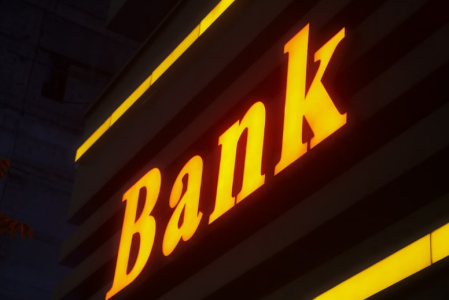Overdraft alert: how the latest law will change fees at big banks—and how your account is affected
- Replies 0
Most people don’t pay attention to overdraft fees until one appears out of nowhere, slicing $35 out of your account like a penalty for being poor.
For millions of Americans, that one fee often snowballs into a series of charges that feel less like banking and more like punishment.
Now, a controversial change in Washington has reversed what was supposed to be a consumer win—leaving the biggest banks free to keep cashing in on what critics call "exploitative" practices.
Earlier this year, a Consumer Financial Protection Bureau (CFPB) rule was set to cap overdraft fees at $5 per transaction for large banks and credit unions.
It would have applied to institutions with over $10 billion in assets, unless they could prove the fee reflected real costs or reclassified it as a credit product under the Truth in Lending Act.
The CFPB estimated this cap could have saved American consumers roughly $5 billion a year, with the average household paying overdraft fees seeing about $225 in annual savings.
But that potential relief was abruptly pulled away when Congress overturned the rule, and former President Trump signed the reversal into law in May.

The banking industry argued that limiting fees would reduce access to overdraft services, restrict credit options, and result in more “unbanked” Americans without checking accounts.
“The Biden administration’s ill-conceived rule imposing new price controls on overdraft services… harmed the very consumers the CFPB is supposed to protect,” said Senator Tim Scott of South Carolina.
Banks also claimed that fewer overdraft options could push vulnerable customers toward riskier financial alternatives.
Consumer advocates, meanwhile, said the real issue wasn’t access—it was unchecked profiteering by institutions already raking in billions.
Also read: Unlock hidden benefits! Discover the retirement perks your bank doesn’t advertise
And rake in billions they do: major banks like Chase, Bank of America, and Wells Fargo still collect around $8 billion annually from overdraft fees, even after scaling back over the past decade.
According to the CFPB, about 70% of those fees are charged to account holders with balances between $237 and $439, the consumers least equipped to handle them.
Wells Fargo, for example, still charges $35 per overdraft, up to three times per day, which can add up to $105 in penalties in just 24 hours.
A single misstep—like an autopay bill you forgot about—can trigger a chain of charges that devastates your monthly budget.
This entire rollback isn’t just financial—it’s political. The Biden administration positioned the overdraft cap as a centerpiece of its crackdown on "junk fees," a broader effort to limit hidden costs on everyday essentials from credit cards to concert tickets.
Congressional Republicans, banking lobbies, and Trump-era regulators fought hard to dismantle the policy before it could take effect.
Their victory ensures that major financial institutions can keep applying their current fee structures with minimal oversight, even as public frustration continues to grow.
And while banks have dodged this regulatory bullet, they’re still undergoing other transformations that could affect consumers just as much.
Also read: Is your local bank next? 36 branches just closed—and more may be on the way
If you ever do get hit with a fee, don’t hesitate to ask your bank for a one-time courtesy refund—many will agree, especially if it’s your first offense.
If your bank isn’t working for you, it might be time to switch. Some credit unions and online banks have already eliminated overdraft fees or offer much more consumer-friendly policies.
With competition growing and new digital institutions popping up, there’s no reason to stay loyal to a system that profits from your mistakes. In an economy this uncertain, protecting your money starts with knowing exactly who’s charging you—and why.
Read next: 7 sneaky scams draining bank accounts—how to protect yourself now

Have you ever been hit with an overdraft fee you couldn’t afford? Do you think these charges are fair—or just another way for banks to squeeze extra cash from customers? Share your thoughts in the comments and help others stay informed about how to navigate the changing rules of personal banking.
For millions of Americans, that one fee often snowballs into a series of charges that feel less like banking and more like punishment.
Now, a controversial change in Washington has reversed what was supposed to be a consumer win—leaving the biggest banks free to keep cashing in on what critics call "exploitative" practices.
Earlier this year, a Consumer Financial Protection Bureau (CFPB) rule was set to cap overdraft fees at $5 per transaction for large banks and credit unions.
It would have applied to institutions with over $10 billion in assets, unless they could prove the fee reflected real costs or reclassified it as a credit product under the Truth in Lending Act.
The CFPB estimated this cap could have saved American consumers roughly $5 billion a year, with the average household paying overdraft fees seeing about $225 in annual savings.
But that potential relief was abruptly pulled away when Congress overturned the rule, and former President Trump signed the reversal into law in May.

how the latest law will change fees at big banks—and how your account is affected. Image source: POURIA / Unsplash
The banking industry argued that limiting fees would reduce access to overdraft services, restrict credit options, and result in more “unbanked” Americans without checking accounts.
“The Biden administration’s ill-conceived rule imposing new price controls on overdraft services… harmed the very consumers the CFPB is supposed to protect,” said Senator Tim Scott of South Carolina.
Banks also claimed that fewer overdraft options could push vulnerable customers toward riskier financial alternatives.
Consumer advocates, meanwhile, said the real issue wasn’t access—it was unchecked profiteering by institutions already raking in billions.
Also read: Unlock hidden benefits! Discover the retirement perks your bank doesn’t advertise
And rake in billions they do: major banks like Chase, Bank of America, and Wells Fargo still collect around $8 billion annually from overdraft fees, even after scaling back over the past decade.
According to the CFPB, about 70% of those fees are charged to account holders with balances between $237 and $439, the consumers least equipped to handle them.
Wells Fargo, for example, still charges $35 per overdraft, up to three times per day, which can add up to $105 in penalties in just 24 hours.
A single misstep—like an autopay bill you forgot about—can trigger a chain of charges that devastates your monthly budget.
This entire rollback isn’t just financial—it’s political. The Biden administration positioned the overdraft cap as a centerpiece of its crackdown on "junk fees," a broader effort to limit hidden costs on everyday essentials from credit cards to concert tickets.
Congressional Republicans, banking lobbies, and Trump-era regulators fought hard to dismantle the policy before it could take effect.
Their victory ensures that major financial institutions can keep applying their current fee structures with minimal oversight, even as public frustration continues to grow.
And while banks have dodged this regulatory bullet, they’re still undergoing other transformations that could affect consumers just as much.
Also read: Is your local bank next? 36 branches just closed—and more may be on the way
If you ever do get hit with a fee, don’t hesitate to ask your bank for a one-time courtesy refund—many will agree, especially if it’s your first offense.
If your bank isn’t working for you, it might be time to switch. Some credit unions and online banks have already eliminated overdraft fees or offer much more consumer-friendly policies.
With competition growing and new digital institutions popping up, there’s no reason to stay loyal to a system that profits from your mistakes. In an economy this uncertain, protecting your money starts with knowing exactly who’s charging you—and why.
Read next: 7 sneaky scams draining bank accounts—how to protect yourself now
Key Takeaways
- Congress overturned a CFPB rule that would have capped overdraft fees at $5 for large financial institutions.
- President Trump signed the reversal into law in May 2025, preserving current fee structures used by major US banks.
- The CFPB estimated that the cap would have saved American consumers $5 billion annually.
- Overdraft fees disproportionately affect low-balance customers, with 70% of fees hitting those with less than $500 in their accounts.






